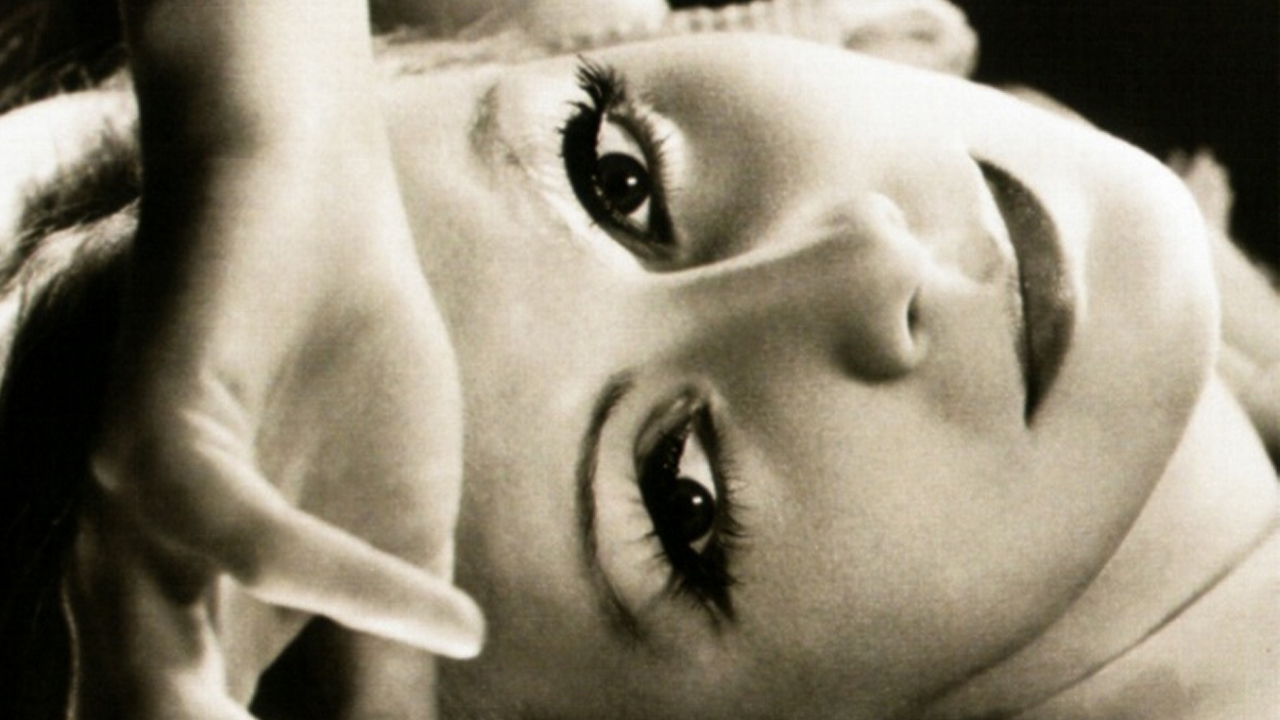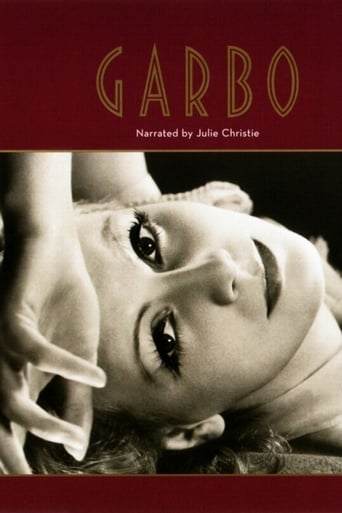


I don't think any film star so totally dictated the term's of their career than Greta Garbo. Once she obtained international stardom after the film Torrent the direction she moved was determined by her and her alone. Even Louis B. Mayer the autocratic boss of Metro-Goldwyn-Mayer gave her a wide berth and treated her as an equal. And when she left the screen abruptly in 1941 she made her retirement stick.Her mystique was intact and stayed intact. I recall several stars in their retirement years like Cary Grant, Irene Dunne, James Cagney, Randolph Scott who quit the field on top. Occasionally you would read small items about them, a stray photograph or two would appear. They would say thanks, but I'm enjoying my leisure. Of the four I mentioned only Cagney made a comeback and I think it was a mistake.Garbo whose image was one of aloofness never looked back. Instead we looked for her if our travels took us to the island of Manhattan. She'd walk around Manhattan doing her window shopping, avoiding stares and cameras and we gave her a wide berth.One of the best tributes I ever read about her came from one of her co-stars Robert Taylor. He had never even spoken to her on the lot before Taylor was cast as Armand in Camille. He was in awe of her, but she put him at ease and worked with him ceaselessly. She demanded excellence in herself more than any director could demand. She made him and others around her better performers, reaching for depths of emotion they never thought they possessed.After the film was over she was aloof again. But Taylor in appreciation for what she did for him just gave Garbo her space and never thought of her as snobbish in any way. It was her way to be alone and he like so many of the public as well as her fellow players gave her what she wanted.Kevin Brownlow did a wonderful assembling the film and the interviews to capture the aloof spirit that was Greta Garbo. From 1941 until 1990 she held us fascinated right up to when she died. That's quite an impression she made.
... View More"One of the most celebrated people in the world desperate not to be recognized..." The very beginning of the latest documentary about Garbo that was released on TCM just before her 100th birthday calls viewers' attention to the personality of this great actress. To understand her more profoundly, the director of the documentary, Kevin Brownlow, aims at detailed exploration of Garbo's life, her wonderful but short screen career as well as her later lonely life. Furthermore, the whole movie is supplied with wonderful music by Carl Davies. I have asked my American friends to copy this film from TCM for me and I do not regret. Having seen Steve Cole's GRETA GARBO-A LONE STAR and some of the other minor documentaries, I must admit that GARBO is the best made biographical film about the Swedish beauty so far.The whole documentary is not sensational but rather aims at presenting Garbo as someone full of contradictions and melancholies. Among a lot of interviews with the people in the film, I particularly liked the one with Mimi Pollak, Garbo's friend from youth, Gray Reisfield, Garbo's niece, Derek and Scott Reisfield, Garbo's great-nephews, and Sam Green, Garbo's companion during later years of her life. They wonderfully managed to get the gist of who Garbo really was - a Swede with Swedish upbringing brought at the age of 20 to a totally different world - Hollywood. She was gentle, humorous, and very independent. Daniel Selznick, the grandson of Louis B. Mayer mentions the fact that Garbo could never adapt to the life and manners promoted within MGM family. Joseph Newman recalls the day on which Garbo first arrived in Hollywood and mentions the difficulties she had to cope with. As a result, we do not get a "glorified picture" of how well everything went but a very realistic look at Garbo's experience abroad. Near the end of the documentary, the viewers are showed the most private thing from Garbo's life, her huge New York apartment with a number of antiques and lovely works of art that she gathered while traveling with friends.The documentary is also supplied with a wide range of original archives. While watching the film, I could not believe my eyes what a wonderful use TCM producers made of these materials and how perfectly they fit to the documentary. From a number of Garbo's pictures taken in Sweden before 1925, you will see plenty of footages with Irving Thalberg, Mauritz Stiller, George Cukor as well as clips from all of the movies Garbo made in America and earlier in Europe. A lot of people mention the cinematographer, William H. Daniels, who made a perfect use of lighting and beautifully photographed Garbo. But the interest reaches its peak when Clarence Brown appears on screen in the 1969 interview footage and comments on the movies and Garbo's intuitive abilities of acting. He was Garbo's favorite director and cast her in 7 of his films. While he comments, we see footages from his films, particularly FLESH AND THE DEVIL (1926) and A WOMAN OF AFFAIRS (1928) where Garbo played by the side of the greatest love of her life, John Gilbert. Therefore, the archives that you will see in GARBO are hard or even impossible to find elsewhere. I was totally amazed.Except for aforementioned factors, the documentary is worth seeing thanks to a lot of interesting facts postulated by various people interviewed. Barry Paris, Garbo's biographer, creates a link between Garbo and the audiences of that time; Daniel Selznick concentrates on Garbo - MGM relations; Leatrice Fountain, John Gilbert's daughter, says a lot about Garbo-Gilbert love; actor James Karen refers to the wide and ambiguous presentation of human psyche that Garbo created in her films, which was not that popular among all people. Yet, Mark Vieira, a photographer, recalls Garbo's friend Salka Viertel and her impact on Garbo's films, particularly German version of ANNA Christie and Mamoulian's QUEEN Christina.If that is not enough, the end of the documentary will absolutely surprise you... It shows the last professional footage of Garbo that was taken in 1949, 8 years after she retired from screen. Although she looks gorgeous in it, the studio did not want her any longer. The footage became known as late as after her 1990 death. What governed the decision to let down the greatest cinema star remains undiscovered...The TCM production, GARBO, is a magnificent biography that makes a tribute to Greta Garbo, probably one of the very few actresses that a lot of viewers of the 21st century still admire and appreciate... an actress that was born to play. It is, if not a must see, a highly recommended documentary for all open minded people. 10/10!
... View MoreTo fully comprehend the mystique, one must witness the early silent films.The moment she enters the picture as a woman in her early twenties, the viewer is deluged with a face so overwhelmingly beautiful there is no way to detach one's vision from the screen.Her acting is the same way. Each gesture and facial expression is flawless, as if a precursor to the "method."Surely, observing from whatever star on which she presently resides, she must be amused by the irony. One hundred years after her birth, sixty plus years after her last film and well over a decade beyond her passing, we are still transfixed by her image and captivated by her mystery. Clearly, she was born to the manner.CAMILLE was her signature film, the evidence that she was a star of unequaled magnificence. And she was surrounded by a great cast.One of the most interesting and mystical facets of Garbo are the rumors that she dismissed her co-star in that movie, Robert Taylor, as being unimportant. In fact, there is considerable evidence to indicate she liked him very much. I cite an article written by Eric L. Ergenbright in a 1937 edition of MOVIE MIRROR magazine: describing Garbo's delight at having recently returned from Sweden where she was treated by a doctor for an ongoing illness, and was now cured. She was apparently outgoing and friendly to everyone on the movie set. Among them was her co-star, Robert Taylor. According to Ergenbright, "Robert Taylor...played an important role in the transformation of Greta Garbo...between scenes of CAMILLE witness Bob Taylor, the ex-farm lad from Nebraska, and Greta Garbo, the ex-milliner from Sweden chatting and laughing like cronies of many years standing. Garbo, it seems, was particularly interested in the Great Middle West because to her way of thinking it is the real America. She asked Bob question after question about his childhood, about life in a small town, about the farms in the Middle West." Another story reports that Garbo was extremely moved when Taylor bought her mother flowers for the premiere of CAMILLE at Stockholm, which the three of them attended. When she was making a movie, she tended to live her roles. It was a device she used to make her part "live." But she was not insensitive nor haughty. And she always recognized the importance of her co-stars and the stagehands.
... View MoreThis is a brilliantly done documentary about one of film's great enigmas, Greta Garbo. For me, watching this was very personal, as I was privileged to research the biography written by Barry Paris (who appears in this documentary). There are interviews with another biographer, Karen Swenson, with Garbo's friends, Sam Green, Gore Vidal, and others, a big fan, the marvelous Charles Busch, family members, John Gilbert's daughter Leatrice Fountain, Daniel Selznick, and footage of an interview with Clarence Brown. The photographs and film clips speak for themselves, for Garbo's tremendous beauty and unique acting ability. She was a totally intuitive actress.It's a pity that, as independent as she was, that she took some bad advice, and a bigger pity that she never returned to the screen after 1941. A 1949 screen test shows her beauty untarnished, yet the producers were unable to raise money for the film they wanted to do, which devastated her.In my own research and transcription work, I have to admit I never experienced the Garbo that her friends and family describe. The woman I got to know through transcription of taped telephone conversations and various stories about her seemed neurotic, passive-aggressive, and, frankly, kind of dull. But she was so magical on screen. This is a wonderful documentary, highly recommended.
... View More